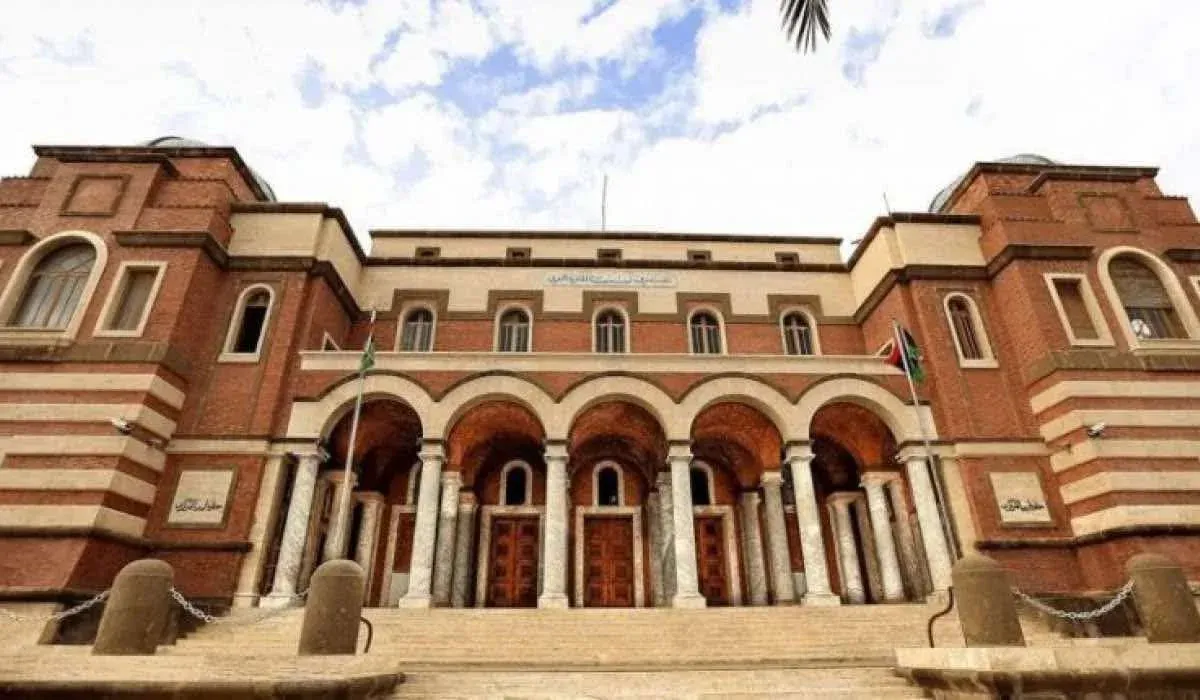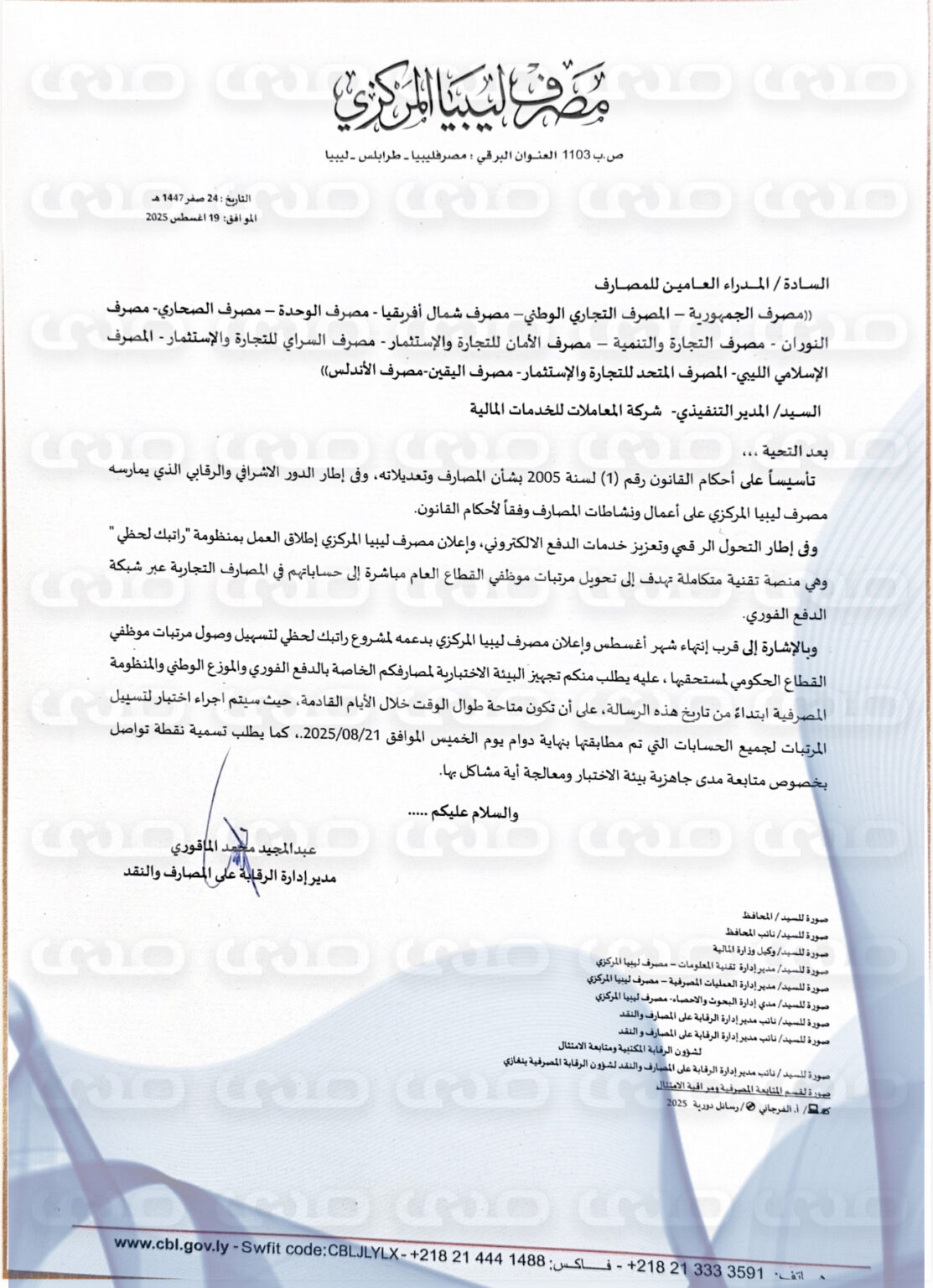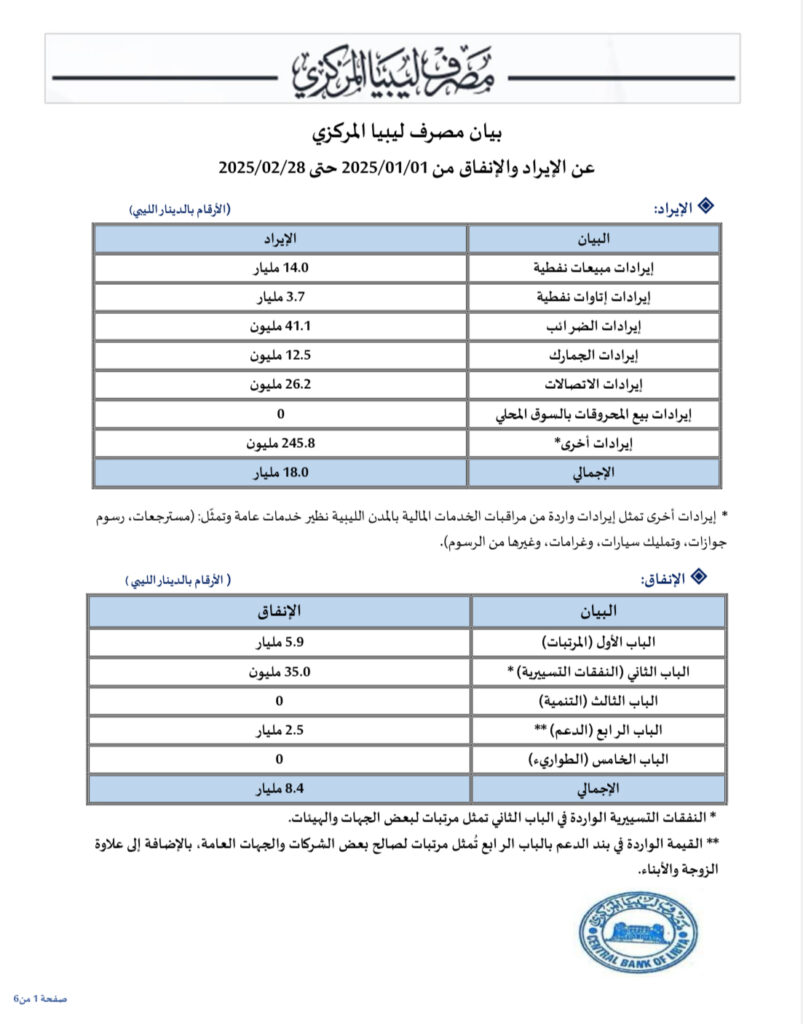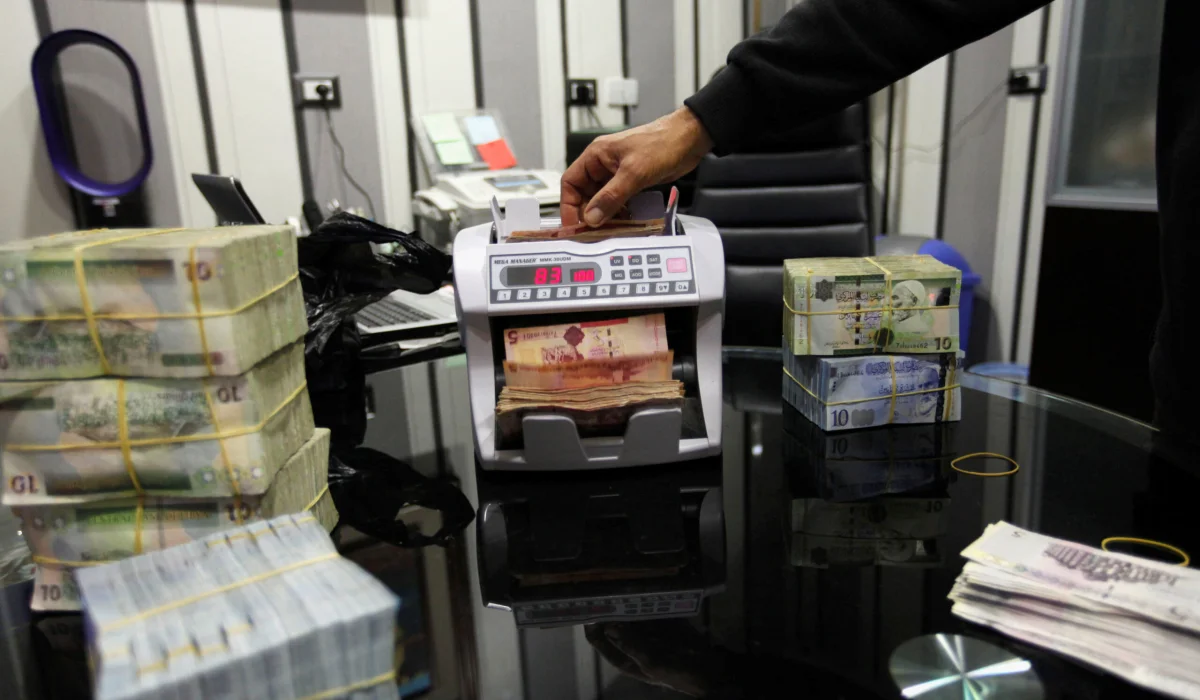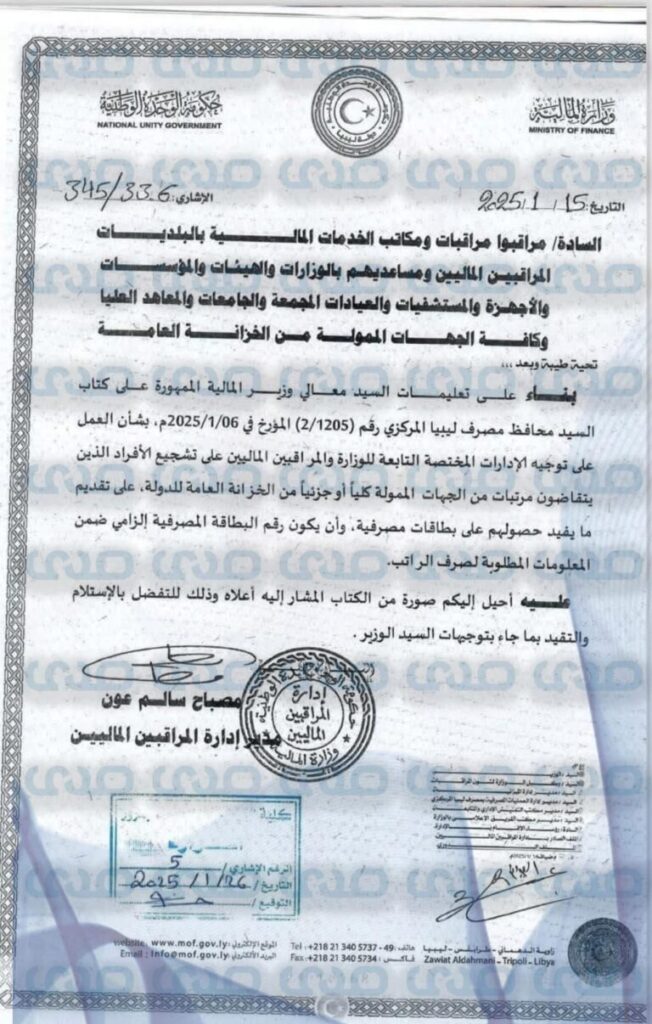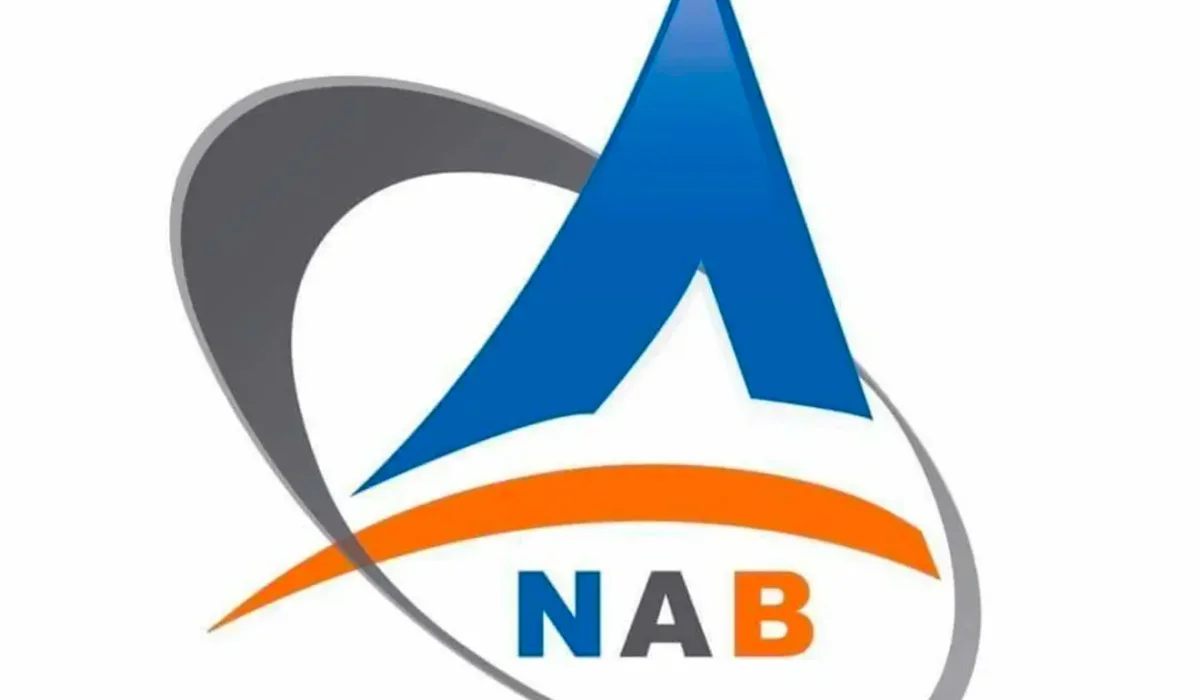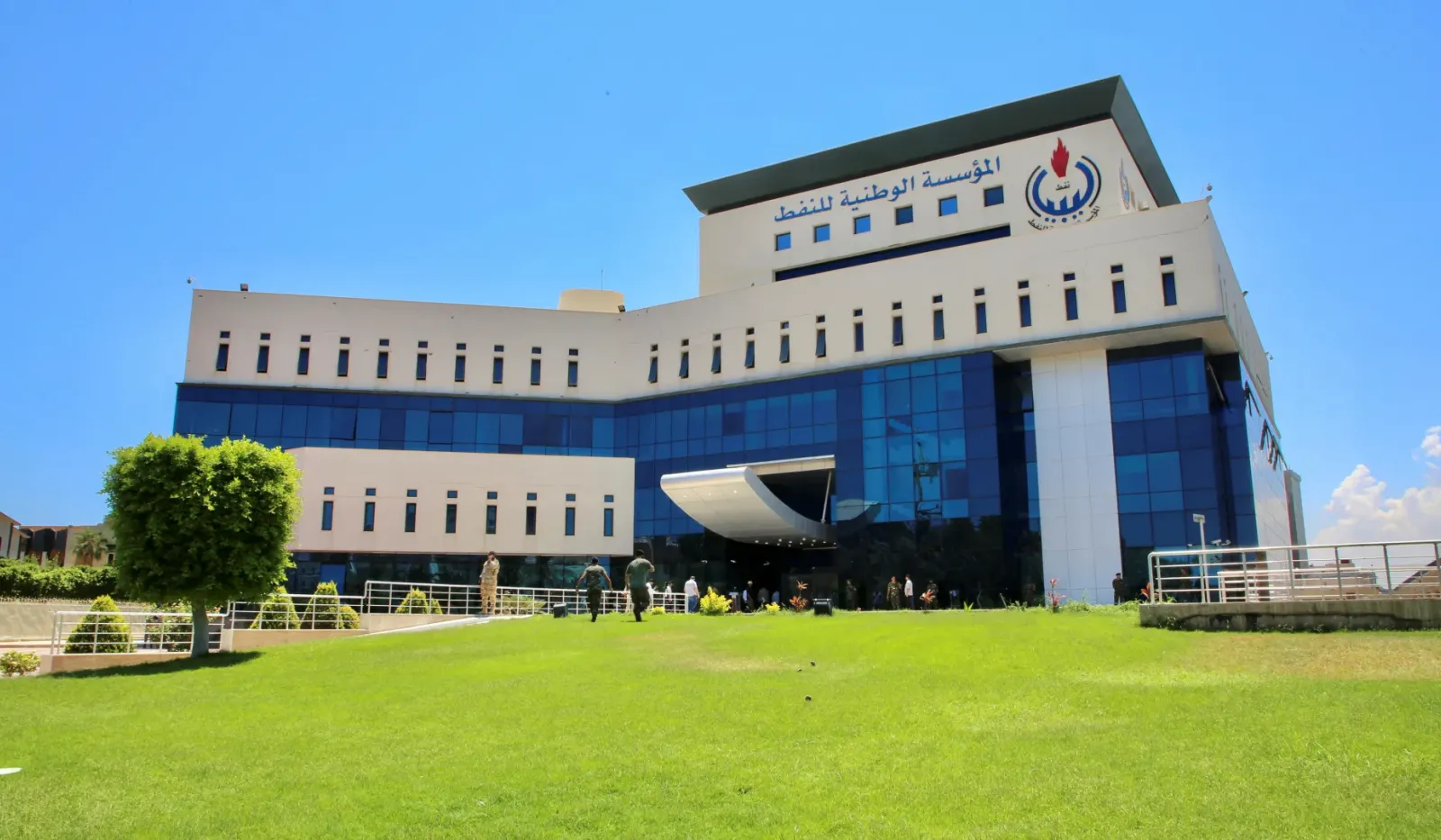After the launch of the “Instant Salary” system by the Central Bank of Libya and the Ministry of Finance of the Government of National Unity as a monitoring tool aimed at controlling violations and theft in the salary file and ensuring that salaries reach their rightful recipients without delay, the Central Bank’s statement for the past ten months reveals that only 3.7 billion Libyan dinars were executed through the system, compared to 51.4 billion dinars disbursed via the traditional wallets to public sector employees!
Among the entities that did not comply with disbursement through “Instant Salary” is the Administrative Control Authority, which relied entirely on the wallet system, despite being a regulatory body that is supposed to be the most committed to transparency standards. Its spending on salaries exceeded 280 million dinars, while its total expenditures reached 301.2 million dinars.
The Ministry of Economy of the Government of National Unity, headed by Mohamed Al-Huwaij, also limited its disbursement outside the system, despite its expected role in controlling markets and public spending. It recorded a direct disbursement of about 24 million dinars outside its affiliated entities, while total expenditures including affiliated entities exceeded 83 million dinars.
This behavior raises questions: How can a ministry representing the Libyan economy operate outside a monitoring system aimed at regulating spending? And what about the rest of the entities?In clear disregard for financial discipline and governmental directives, which are supposed to be strict rather than discretionary, when the Government of National Unity instructed its affiliated entities to include their salaries in the “Instant Salary” system, the Council of Ministers executed only 1.4 billion dinars through the system, compared to only 32.6 million dinars processed via the wallet system.
The violations did not stop there; data also indicates that the House of Representatives did not include its data in the “Instant Salary” system, relying instead on the wallet system for 55.5 million dinars, bringing its total expenditures to 69.1 million dinars.The Presidential Council executed only 337 thousand dinars in salaries through the system, compared to 7.5 million dinars disbursed outside it, while its total expenditures reached 47.8 million dinars.
Interestingly, the Ministry of Finance in the Government of National Unity, which is considered the main arm of this system, executed only 2.2 billion dinars via “Instant Salary,” while traditional transactions continued with 20.1 million dinars processed through the wallet system.The Ministry of Interior executed only 4 thousand dinars via the “Instant Salary” system, compared to 1 billion dinars disbursed through wallets, while the total expenditures of the ministry and its affiliated entities reached about 5.5 billion dinars. Shockingly, the Social Solidarity Authority, instead of supporting vulnerable groups, disbursed only 3.9 thousand dinars through the system, compared to 1.1 billion dinars through the wallet system, bringing its total spending over ten months of 2025 to 2.3 billion dinars, despite the difficult conditions of patients and pensioners receiving the lowest salaries.Thus, it becomes clear that the system has not achieved its goal, due to the insistence of most state institutions on continuing traditional disbursement practices, away from monitoring and oversight.
Questions remain unanswered: Who bears responsibility for this manipulation? Who benefits from the continuation of this chaos? And will these violations continue into the next year?






